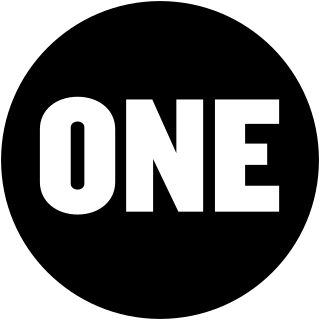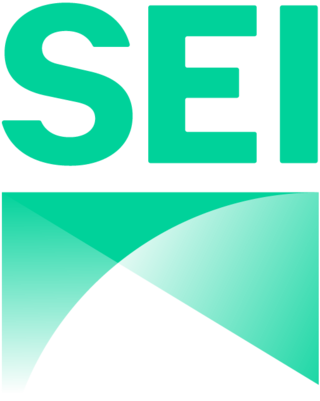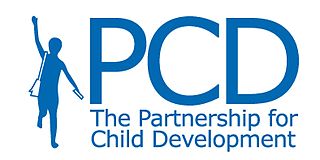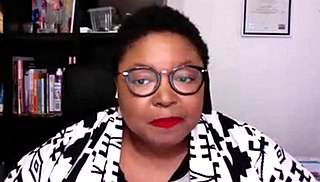Related Research Articles

The United Nations Foundation is a charitable organization headquartered in Washington, D.C., that supports the United Nations and its activities. It was established in 1998 with a $1 billion gift to the United Nations by philanthropist Ted Turner, who believed the UN was crucial for addressing the world's problems. Originally primarily a grantmaker, the UN Foundation has evolved into a strategic partner to the UN, mobilizing support to advance the Sustainable Development Goals (SDGs), and help the UN address issues such as climate change, global health, gender equality, human rights, data and technology, peace, and humanitarian responses. The UN Foundation's main work occurs through building public-private partnerships, communities, initiatives, campaigns, and alliances to broaden support for the UN and solve global problems. The UN Foundation has helped build awareness and advocate for action on, among others, antimicrobial resistance, regional action on climate change, local implementation of the SDGs, as well as global campaigns such as Nothing But Nets against malaria, the Measles & Rubella Initiative, the Clean Cooking Alliance, Girl Up, Shot@Life, and the Digital Impact Alliance, among others. In March 2020, the UN Foundation was also a key founder of the COVID-19 Solidarity Response Fund on behalf of the World Health Organization (WHO), helping to raise over $200 million USD within the first six weeks to support the global response to the COVID-19 pandemic.

The Bill & Melinda Gates Foundation (BMGF) is an American private foundation founded by Bill Gates and Melinda French Gates. Based in Seattle, Washington, it was launched in 2000 and is reported to be the second largest charitable foundation in the world, holding $69 billion in assets as of 2020. The primary stated goals of the foundation are to enhance healthcare and reduce extreme poverty across the world, and to expand educational opportunities and access to information technology in the U.S. Key individuals of the foundation include Warren Buffett, chief executive officer Mark Suzman, and Michael Larson.

ONE Campaign is an international, non-partisan, non-profit organization advocating for the investments needed to create economic opportunities and healthier lives in Africa. The campaigning organization uses data, grassroots activism, political engagement, and strategic partnerships to get political leaders to support policies and programs that save lives and improve futures.
The International Food Policy Research Institute (IFPRI) is an international agricultural research center that provides research-based policy solutions to reduce poverty and end hunger and malnutrition throughout the developing world in environmentally sustainable ways. For nearly 50 years, IFPRI has worked with policymakers, academics, nongovernmental organizations, the private sector, development practitioners, and others to carry out research, capacity strengthening, and policy communications on food systems, economic development, and poverty reduction.
The European and Developing Countries Clinical Trials Partnership (EDCTP) is a partnership between the European Union (EU), Norway, Switzerland and developing countries and other donors, as well as the pharmaceutical industry, to enable clinical trials and the development of new medicines and vaccines against HIV/AIDS, tuberculosis, and malaria. The need for global action against these diseases in order to promote poverty reduction has been recognised by the United Nations, the G8, and the African Union, and the program envisioned the provision of €600 million for the period 2003–2007 in order to translate medical research results into clinical applications relevant to the needs of developing countries.

Stockholm Environment Institute, or SEI, is a non-profit, independent research and policy institute specialising in sustainable development and environmental issues, with seven affiliate offices around the world. SEI works on climate change, energy systems, water resources, air quality, land-use, sanitation, food security, and trade issues with the aim to shift policy and practice towards sustainability.

The Partnership for Child Development (PCD) is a research and technical assistance group based at Imperial College London that seeks to improve health and nutrition in school-age children and youth in low-income countries, thereby improving their education outcomes. PCD was formed in 1992 at the University of Oxford to bridge gaps between academia, funding bodies and the education and health sectors in low-income countries.
The Health Metrics Network (HMN) was a global health partnership focused on strengthening health information systems in low and middle income countries, launched in May 2005 during the 58th session of the World Health Assembly (WHA) and dissolved on 31 May 2013. Hosted by the World Health Organization (WHO) in Geneva, Switzerland, the HMN's stated purpose was to make available timely and accurate health information by encouraging joint funding and development of country health information systems, to improve health and save lives.

The Sustainable Sanitation Alliance (SuSanA) is a loose network of organizations who are "working along the same lines towards achieving sustainable sanitation". It began its work in 2007, one year before the United Nations International Year of Sanitation in 2008. The intention of creating SuSanA was to have a joint label for the planned activities for 2008 and to align the various organizations for further initiatives.
The Grand Challenges in Global Health (GCGH) is a research initiative launched by the Bill & Melinda Gates Foundation in search of solutions to health problems in the developing world. Fifteen challenges are categorized in groups among seven stated goals plus an eighth group for family health. The disciplines involved include immunology, microbiology, genetics, molecular biology and cellular biology, entomology, agricultural sciences, clinical sciences, epidemiology, population and behavioral sciences, ecology, and evolutionary biology.
Innovations for Poverty Action (IPA) is an American non-profit research and policy organization founded in 2002 by economist Dean Karlan. Since its foundation, IPA has worked with over 400 leading academics to conduct over 900 evaluations in 52 countries. The organization also manages the Poverty Probability Index.

Unlimit Health is an international organisation working to end parasitic disease. The organisation partners with affected countries, sharing evidence and expertise to eliminate preventable infections, through technical and financial support to ministries of health, in line with their strategies and plans, to strengthen health systems within affected communities.
The Task Force for Global Health is an international, nonprofit organization that works to improve health of people most in need, primarily in developing countries. Founded in 1984 by global health pioneer Dr. William Foege, The Task Force consists of eight programs focused on neglected tropical diseases, vaccines, field epidemiology, public health informatics, and health workforce development. Those programs include the African Health Workforce Project, the Center for Vaccine Equity, Children Without Worms, International Trachoma Initiative, Mectizan Donation Program, Neglected Tropical Diseases Support Center, Public Health Informatics Institute, and TEPHINET. The Task Force works in partnership with ministries of health and hundreds of organizations, including major pharmaceutical companies that donate billions of dollars annually in essential medicines. Major funders include the Bill & Melinda Gates Foundation, CDC, WHO, Robert Wood Johnson Foundation, de Beaumont Foundation, United States Agency for International Development, Sightsavers, Pfizer, Merck & Co., Johnson & Johnson, and GlaxoSmithKline. The Task Force is affiliated with Emory University, headquartered in Decatur, Georgia, a town in metro Atlanta, and has regional offices in Guatemala and Ethiopia. The Task Force currently supports work in 154 countries.

Founded in 1999, Alliance India is a non-governmental organisation operating in partnership with civil society, government and communities to support sustained responses to HIV in India that protect rights and improve health. Complementing the Indian national programme, we build capacity, provide technical support and advocate to strengthen the delivery of effective, innovative, community-based HIV programmes to vulnerable populations: sex workers, men who have sex with men (MSM), transgender people, hijras, people who inject drugs (PWID), and people living with HIV.
This page is a timeline of global health, including major conferences, interventions, cures, and crises.
The Health Intervention and Technology Assessment Program (HITAP) is a semi-autonomous research unit under Thailand’s Ministry of Public Health. It was established in 2007 as a non-profit organization in order to take responsibility for appraising a wide range of health technologies and programs, including pharmaceuticals, medical devices, interventions, individual and community health promotion, and disease prevention as well as social health policy to inform policy decisions in Thailand. HITAP assumes an advisory role to health governmental authorities by providing rigorous scientific evidence through professional assessment of health data in support of public decision-making. These assessments cover a range of topics including system design, selection of technologies for assessment, and the actual assessment of those selected and agreed upon by relevant government agencies. In this effort, HITAP publishes research and studies in the following areas: methodological development, databases and guidelines; knowledge transfer and exchange (KTE) and capacity development; technology assessments on drugs, medical devices, medical procedures, disease prevention and health promotion measures; benefit packages of care – mixing screening and treatments; and other public health policies, e.g. evaluation of Thailand’s government compulsory license policy.
Grand Challenges Canada (GCC) is a Canadian nonprofit organization that employs a Grand Challenges model with the aim to fund solutions for health and economic problems in low-and middle-income countries and Canada.
In global health, priority-setting is a term used for the process and strategy of deciding which health interventions to carry out. Priority-setting can be conducted at the disease level, the overall strategy level, research level, or other levels.

Global Goals Week is a shared commitment between a coalition of over 160 partners across all industries, which mobilizes annually in September to bring together communities, demand urgency, and supercharge solutions for the Sustainable Development Goals (SDGs). It was founded in 2016 by the United Nations Foundation, Project Everyone, and the United Nations Development Programme (UNDP). It is timed to coincide with the UN General Assembly "High-Level Week" in New York. The week includes events, summits, conferences, forums, workshops, pledges, and other activations in New York, around the world, and online. It usually runs alongside Climate Week NYC, the annual conference of Goalkeepers, Bloomberg Global Business Forum and many other high-level events.

Tlaleng Mofokeng is a South African physician who is the United Nations' Special Rapporteur on the Right to Health. She campaigns for universal health access and HIV care. She was named one of the BBC's 100 Women in 2021.
References
- 1 2 3 "ABOUT US". iDSI. Archived from the original on May 25, 2016. Retrieved May 26, 2016.
- 1 2 3 4 "International Decision Support Initiative awarded US$12.8m grant from the Gates Foundation". iDSI. January 30, 2016. Retrieved May 26, 2016.
- ↑ Yot Teerawattananon; et al. "Role of priority setting in implementing universal health coverage" (PDF). The BMJ.
- 1 2 3 "Priority-Setting Institutions for Global Health". Center for Global Development. Retrieved May 29, 2016.
- ↑ Amanda Glassman (February 8, 2016). "The International Decision Support Initiative Is Scaling Up—That Means Better Decisions and Better Health". Impatient Optimists. Bill & Melinda Gates Foundation.
- ↑ "Supporting Partners". iDSI. 2016-04-08. Retrieved May 26, 2016.
- ↑ "international Decision Support Initiative (iDSI): Mapping of Priority-setting in Health in 17 Low and Middle Income Countries Across Asia, Latin America and Africa". Office of Health Economics. April 22, 2015. Retrieved May 29, 2016.
- ↑ "National Institute for Health and Care Excellence". Bill & Melinda Gates Foundation. December 2015.
- ↑ "iDSI in India". iDSI. Retrieved June 5, 2016.
- ↑ Ryan Li (April 25, 2014). "Thank you for raising such an" . Retrieved May 29, 2016.[ permanent dead link ]
- ↑ "Ryan Li". iDSI. Archived from the original on August 5, 2016. Retrieved May 29, 2016.
- ↑ "Collaborators". DCP3. Retrieved May 26, 2016.